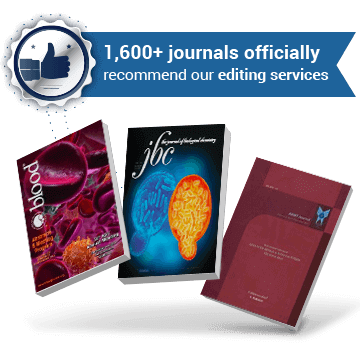How to write a research paper without grammatical errors
How to write a research paper without grammatical errors
Every research paper is immensely important to the career progression of most academics. It takes a lot of time, effort, and resources to conduct research, which makes the final output very valuable. Researchers are under constant pressure to publish research papers. ‘Publish or perish’ is a reality in academia that pushes researchers to publish papers regularly. Grammatical errors in research manuscripts are blemishes that can delay the publication process unnecessarily. Employing a service to check English grammar for your manuscript can save time and effort that can be used to do experiments or write grants. A professional English grammar checker would thoroughly check your document and ensure an error-free manuscript ready for submission.

Here, we discuss some common grammatical errors that plague manuscripts and authors can avoid them.
Article usage
Accurate article usage is extremely important for clarity and readability. Authors who are not comfortable with English tend to use articles incorrectly often. It is important to understand the difference between indefinite articles (‘a’ and ‘an’) and the definite article (‘the’). One should know when to use which article. The definite article, “the”, is used to refer to somebody or something that is the only, normal, or obvious one of their kind such as body parts, countries, and decades. For example, The President of the United States of America, The 1980s, The heart was harvested from the animal). “The” is also used before superlatives and ordinal adjective such as “the fastest”, “the highest”, “the first of its kind”, “the third replicate” An indefinite article, “a/an”, is used to refer to somebody or something that is not unique but rather just one among many. For example, “A student of medicine” or “An apple from New Zealand”.
Use of “which/who” and “that”
Essential information used to define a noun should be preceded by “that”, whereas “which/who” precedes additional information that is not necessary to define the noun. A comma always precedes the use of “which/who” in this context. For example, “The patients that were admitted on Monday were administered the drug.” The sentence means that only the patients admitted on Monday were administered the drug. “The patients, who were admitted on Monday, were administered the drug.” Here, the sentence means that the patients were administered the drug and they just happened to be admitted on Monday.
Spelling
Always check the guidelines of your target journal. Some journals prefer the use of American English and others prefer British English. Many spellings, formats, and conventions vary between American and British English. Although document creation software such as MS Word give you the option to choose an English convention, employing the services of a native English speaking editor is the best way to ensure that your manuscripts conforms to all the guidelines of the target journal.
Proofread
The best way to avoid typographical errors and awkward sentences is to proofread your manuscript thoroughly before submission. Print out your document and proofread each sentence with a pencil in your hand. Errors in sentence construction can be spotted easily by reading the manuscript backwards, one sentence at a time. Although the spell-check tool built into MS Word also functions as an English sentence corrector, it is not reliable, especially if your manuscript contains a lot of scientific language. Reading out the entire manuscript aloud can also help you identify incorrect placement of punctuation.
Punctuate accurately
Using comma, periods, colons, semi-colons, quotations, and parentheses accurately is an important skill to have. It requires years of study and practice in English to punctuate sentences perfectly. Consult an experienced editor whenever you are doubtful about the use of punctuation in your manuscript. Researchers should always prioritize their experiments and the science. Instead of spending time and effort becoming an expert in English, find a trusted English editing service that can provide you subject-specific editors. This will save you time and effort that you can spend in the lab or with your family.
You get 100% quality and confidentiality assurance with all our
research paper editing and proofreading services!
Depending on the scope of the research paper and the publication goals, our editing prices vary but are usually determined by total word count. To get a quote for the research editing service you need, click here
Our promise to you… You must love every aspect of our quality and service or we insist on refunding you in full—cheerfully and without hesitation.
Need publication advice?
Start your publication journey now
All our editing plans come with 100% confidentiality and quality guarantee.
